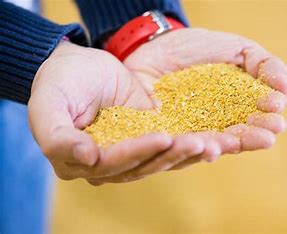Strong investor demand and positive profitability of agricultural production were key factors, says global report
30/01/2023

Prices for farmland dedicated to cereal grains in Brazil rose by an average of 45% year-on-year in 2022. The average value per hectare of soybean and corn plantations, for example, rose to R$53.300 from R$36.700, driven by strong investor demand in this market and the positive profitability of agricultural production, despite high costs, according to the most recent report by S&P Commodity Insights.
In three years, the appreciation of the country’s farmland has reached 127.4%. In 2019, the average value of a hectare dedicated to grain production was R$23,400. During the same period, sugarcane plantations also became more expensive (93.3%, going to R$46,300 from R$23,900), pastureland (60.6%, to R$13,200 from R$8,200), coffee (132.1%, to R$44,000 from R$18,900) and planted forests (53.8%, to R$18,000 from R$11,700).
A more moderate market is expected in 2023, with prices rising at a slower pace. Those in the industry believe that there will be a window of opportunity for investors with liquidity to acquire land from the second half of the year.
Mario Lewandowski, head of new business at AGBI, believes that the maintenance of high costs in the rural areas, with the high interest rates, will come back to haunt some producers who have not planned well and have relied on leverage. The option for some, he said, will be to sell the land.
“Many farmers will find it difficult to pay last year’s installments and to get good loans this year, especially those who financed with more expensive money. Six months from now, with the increase in interest rates and costs, the farmer who did not make the right calculation will have to sell a piece of land,” Mr. Lewandowski told Valor.
In recent years, interest rates in the country have risen to 13.75% a year from as low as 2% in March 2021, with no signs of a sharp drop in the short term. “If there is a sharp fall in interest rates in the coming months, farmers will reorganize. Our understanding is that this is a good time to be liquid because opportunities will appear,” he added. AGBI is an investment manager focused on farmland and real assets.
Mr. Lewandowski argued that the price of land is not “good to buy” and that the indexes will not fall, as they are linked to the quotation of agricultural products and have the values constantly adjusted by inflation. However, there should be an adjustment while the market adjusts to the new conditions of interest rates and input costs. According to him, some prices on the market today are not “sustainable” and do not reflect the real value of the land.
This is what the market refers to as a wide price range. The S&P Global report shows that in Brazil’s Central-West region, the average land price in the last quarter of 2022 was R$26,700 per hectare. The survey identified areas priced at R$1,000 and others at R$124,000. In the South, the most consolidated and most highly valued region, land was valued at R$212,000 per hectare. The average price of land in Paraná, Santa Catarina and Rio Grande do Sul from October to December last year was R$56,800. The lowest price recorded for productive land in the country was in Pará, at R$300 per hectare.
AGBI’s first farm was purchased in 2013 for R$9,000 per usable hectare of pasture. In 2020, the same area was sold for R$50,000 after being converted to crops. Mr. Lewandowski says that there has been a change in prices and that it is unlikely that the management company will again be able to pay investors returns of 500%. “We will never again find land at R$9,000, but if we find it close to R$30,000 and sell it for R$60,000, we can double our capital just by playing it safe. We are confident that we can, at least, double it,” he predicted.
According to a report by S&P Global Commodity Insights, the market became more “subdued” in the last quarter of 2022 “due to high land prices, a contraction in some commodity indicators, and market sensitivity to the new federal administration.” Uncertainty over fiscal policy in Brasília, with potential implications for taxes, interest rates, and prices, can affect production costs and impact land prices, it says.
The international environment is also having an impact on the market, particularly with lower growth or a slowdown of Brazil’s main trading partners. “However, with the prospect of increased agricultural production in the country and consequent increase in domestic stocks, we could see some pressure on prices, which was not the case in last year’s crop, when stocks were limited,” says the report.
*By Rafael Walendorff — Brasília
Source: Valor International
